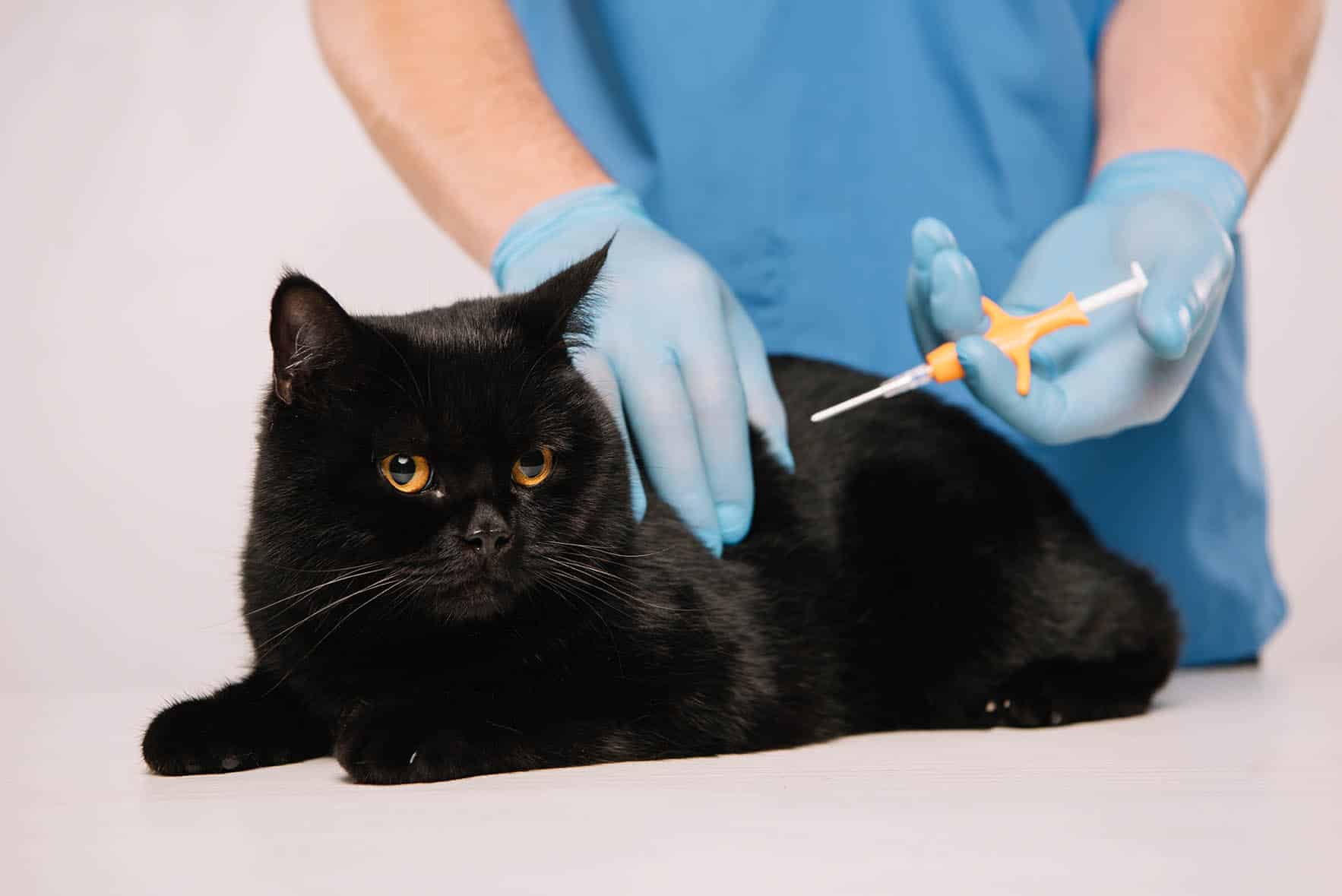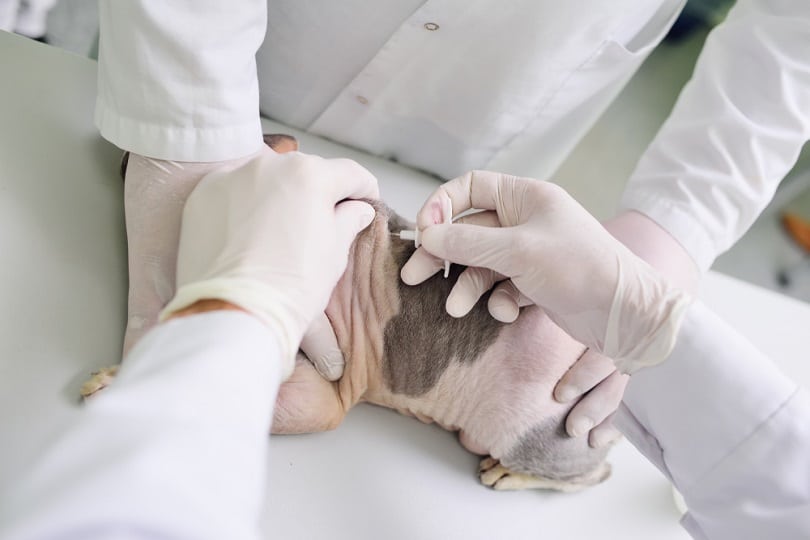The post National Microchipping Month 2024: When & What It Is by Chris Dinesen Rogers appeared first on Catster. Copying over entire articles infringes on copyright laws. You may not be aware of it, but all of these articles were assigned, contracted and paid for, so they aren't considered public domain. However, we appreciate that you like the article and would love it if you continued sharing just the first paragraph of an article, then linking out to the rest of the piece on Catster.com.
The facts of lost pets tell a sad tale. Roughly 15% of cat owners will lose their pet within a 5-year timespan. Outdoor felines often travel about 1 mile farther from home, complicating returning the animals to their families. That’s where microchipping comes into play. This ID system can help reunite pets with their owner and avoid the tragic endings of these incidents.
Some people were skeptical about these devices, with much misinformation floating around the internet. That’s what makes National Microchipping Month every May or June (depending on where you live) such an essential public information campaign. Its goal is to educate people about their benefits and address their concerns. Unfortunately, many myths exist that make this awareness campaign necessary.

Microchipping 101
Microchips came on the scene in the mid-1980s. It revolutionized wildlife tracking and pet tracking. The premise is to implant an electronic device under an animal’s skin that would provide permanent identification with a unique tracking code that identifies the owner. The device is relatively small and implanted under the scruff of the neck. Veterinarians often microchip pets when they are fixed.
Its value is a permanent form of ID. If your pet gets lost, vet clinics and shelters routinely scan for a device. Manufacturers producing these products include HomeAgain, Avid Identification Systems, BuddyID, and AKC Reunite. The cost is typically under $100. Some pet insurers may cover this expense. Once implanted, you must register it with the company.
The costs are minimal after your initial purchase. Some may charge you a one-time fee; others have annual plans. Many offer additional services to expedite reuniting you with your pet if they get lost, such as alerting organizations or flyers to distribute in your neighborhood. Any expenses you incur are negligible compared to reuniting you with your animal companion.
You only need to have it done once since the typical chip lasts up to 25 years. Contrary to popular belief, a microchip is not a GPS tracker. It doesn’t raise privacy concerns on this score. Its sole purpose is identification. However, it doesn’t replace a collar and ID tag since individuals who may find a pet may not have access to a scanner. You can think of a microchip as insurance.

National Microchipping Month in May — AKC Reunite
AKC Reunite is the non-profit arm of the American Kennel Club (AKC). Since its founding in 1995, the organization has reunited more than 600,000 pets. Their success stories are a moving testament to getting your animal companion microchipped. They also work with pet disaster relief and K9 rescue operations.
May is the organization’s official National Microchipping Month. It’s the AKC’s way to give back to the pet owner community with knowledge and awareness about its importance. They work closely with veterinarians and animal shelters to promote microchipping and address any concerns pet owners may have about the process.
National Microchipping Month in June — The Kennel Club
The Royal Kennel Club conducts a similar campaign in June in the United Kingdom. The goals of the national holiday are the same. It also helps pet owners stay compliant with legislation that requires registration with a government-compliant database such as Petlog. It’s worth noting that microchipping is compulsory for cats beginning June 10, 2024. Failure to do so will result in a hefty fine.
Therefore, that makes National Microchipping Month a PSA for pet owners to ensure they’re following the law. Cat owners in the United Kingdom are more likely to let their pets outdoors than Americans. This measure seems fitting, given this fact.

National Check the Chip Day — The American Veterinary Medical Association (AVMA)
It’s all well and good to get your pet microchipped. However, it helps little if you fail to keep your contact information up to date. A study conducted by the AVMA found that 41.9% of lost pets turned into animal shelters were not registered with the microchip’s manufacturer. Roughly 35.4% had incorrect contact information. That makes the organization’s decision to create their awareness day so fitting.
August 15 is National Check the Chip Day. Many companies allow free updates to your registration information. Things change. People move. Cell phones get lost. This day is an excellent reminder to ensure everything is current. Hopefully, you’ll never need to put it to the test.

Final Thoughts
National Microchipping Month and National Check the Chip Day are effective ways to reduce the number of pets ending up in shelters, separated from their human families. It’s added insurance that you’ll be reunited with your animal companion if they slip a collar or harness. It’s not an expensive procedure, but the results, if you have to use it, are priceless.
Featured Image Credit: LightField Studios, Shutterstock
The post National Microchipping Month 2024: When & What It Is by Chris Dinesen Rogers appeared first on Catster. Copying over entire articles infringes on copyright laws. You may not be aware of it, but all of these articles were assigned, contracted and paid for, so they aren't considered public domain. However, we appreciate that you like the article and would love it if you continued sharing just the first paragraph of an article, then linking out to the rest of the piece on Catster.com.